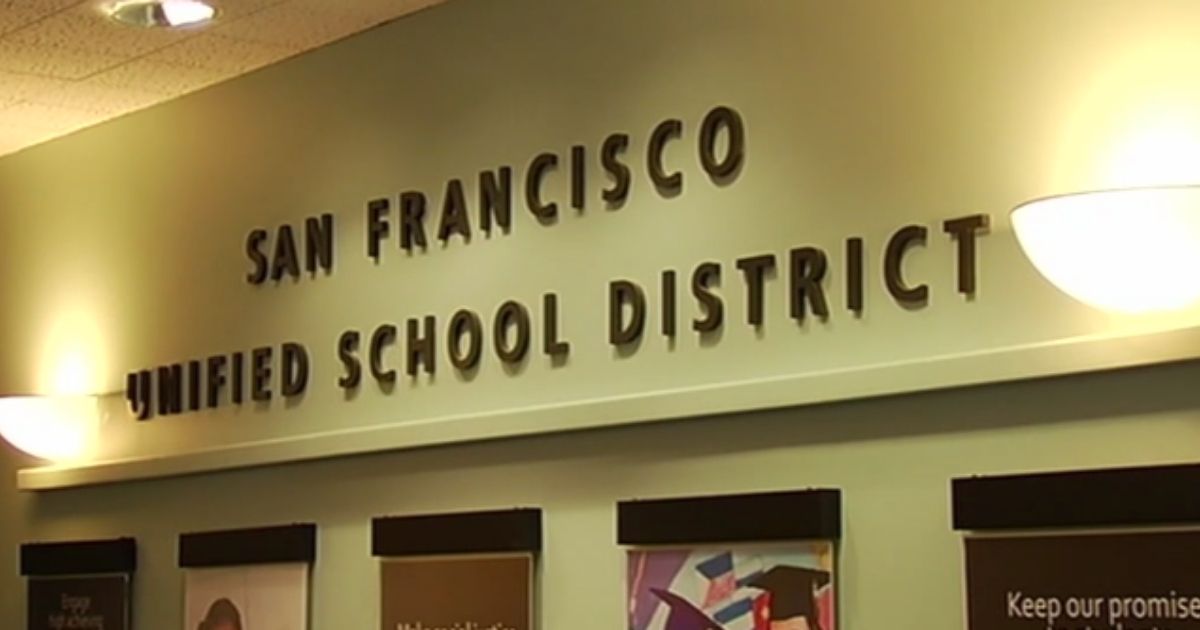The progressive city of San Francisco is currently encountering a significant financial crisis within its school system, with the possibility of school closures looming due to budget constraints.
This dire situation is perplexing, given the substantial taxes paid by residents in the area to support public education.
Recently, officials from the school district engaged with financial experts who delivered some sobering advice.
The San Francisco Chronicle reported that two fiscal experts, appointed several years ago to provide guidance to the district, were granted authority to suspend or reverse financial decisions made by the superintendent or school board.
This drastic measure was authorized due to the district’s distressed financial condition. The state superintendent of public instruction has intervened to address this critical situation.
During a meeting held on Tuesday night, the school board was confronted with the harsh reality of their financial predicament as state advisers and fiscal experts outlined the stark situation and emphasized what measures are necessary to overcome it.
They advocated for an immediate hiring freeze, a recommendation that Wayne, a key figure in the district, agreed to enforce.
State officials acknowledged that while the district has been cooperative and responsive to requests, it has been grappling with overspending for an extended period without adapting to declining enrollment trends.
Moreover, its reliance on a robust state budget, savings, and pandemic recovery funds has exacerbated their fiscal woes.
The repercussions of these financial missteps have become increasingly apparent as bills continue to mount while an underwhelming state budget further complicates matters.
The San Francisco Chronicle reported:
Late last week, two fiscal experts — appointed a few years ago to give guidance to the district — were authorized to suspend or reverse financial decisions made by the superintendent or school board. It’s an extreme action the state superintendent of public instruction can take when a district is in a “distressed financial condition.”…
The school board spent Tuesday night reviewing the new reality, with state advisers and other fiscal experts detailing the stark financial situation and what it will take to dig out of the hole. They urged district leaders to enact an immediate hiring freeze, which Wayne agreed to enforce. State officials, who met with Wayne last week, acknowledged the district has been cooperative and is responding to requests more quickly…
This moment has arguably been a long time coming. The district has been overspending for years, failing to adjust for declining enrollment and relying on a flush state budget, savings and pandemic recovery funds to make ends meet.
Those bills are coming due, and an anemic state budget is making matters worse.
As far back as October 2023, CBS News reported on an issue involving teacher salaries in San Francisco.
Following an all-night bargaining session between teachers’ unions and the district, a tentative agreement was reached that averted a potential strike.
This agreement included a $9,000 salary increase for teachers during that academic year and an additional 5% raise for the subsequent school year.
Critics assert that such concessions made to teacher unions may contribute to exacerbating the financial strain faced by schools in San Francisco.
It appears that teacher unions consistently secure favorable outcomes in negotiations with little regard for broader fiscal implications.
The convergence of these factors has created a perfect storm for San Francisco’s educational institutions. The progressive ethos of the city does not insulate its schools from economic realities.
The need for prudent financial management is now undeniable as tough decisions loom ahead – including potential closures of schools – if fundamental changes are not implemented swiftly.
It is evident that San Francisco’s schools are confronted with formidable challenges stemming from longstanding financial mismanagement compounded by declining enrollment and inadequate state funding.
The recent agreements with teacher unions have added another layer of complexity to this already dire situation.
As stakeholders grapple with these issues and contemplate difficult decisions regarding budgetary restraints and potential school closures, it is imperative that they prioritize long-term sustainability over short-term concessions in order to chart a viable path forward for San Francisco’s educational landscape.


